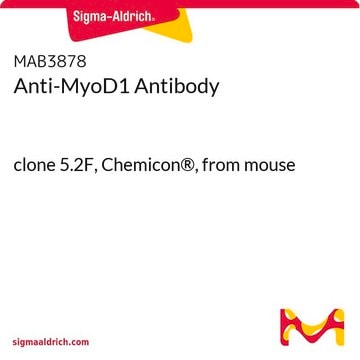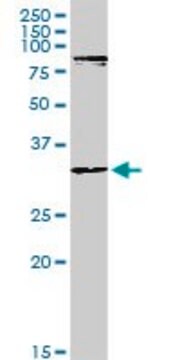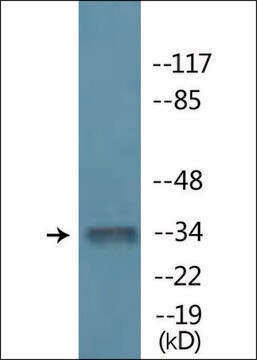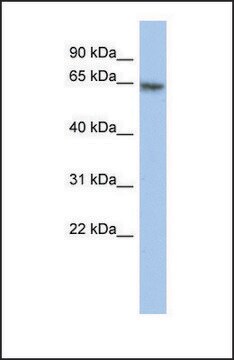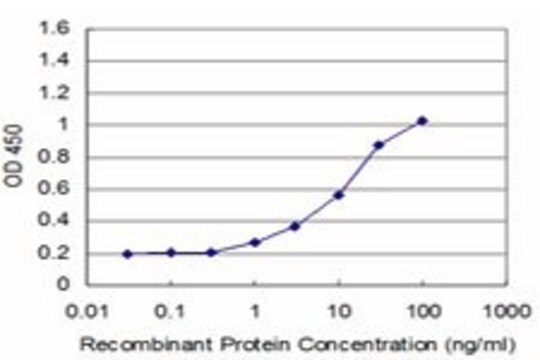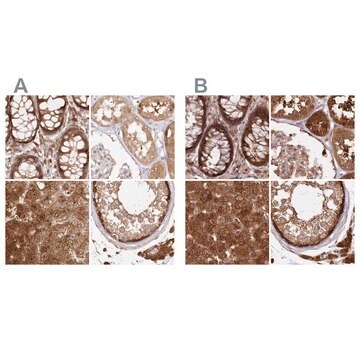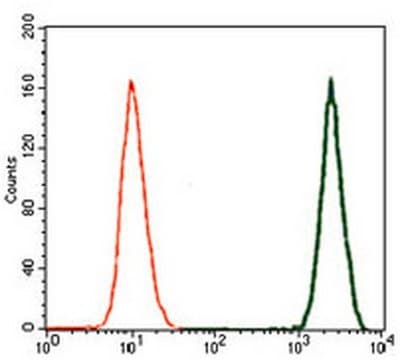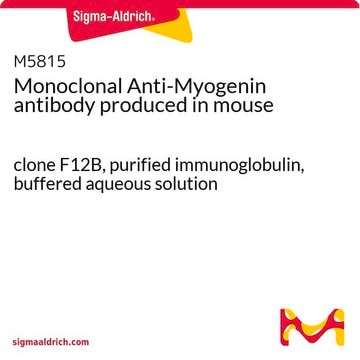MABE132
Anti-MyoD Antibody, clone 5F11
clone 5F11, from rat
Synonym(s):
Myoblast determination protein 1
About This Item
Recommended Products
biological source
rat
Quality Level
antibody form
purified immunoglobulin
antibody product type
primary antibodies
clone
5F11, monoclonal
species reactivity
mouse
technique(s)
immunocytochemistry: suitable
western blot: suitable
isotype
IgG2aκ
NCBI accession no.
UniProt accession no.
shipped in
wet ice
target post-translational modification
unmodified
Gene Information
mouse ... Myod1(17927)
Related Categories
General description
Immunogen
Application
Western Blot Analysis: A representative lot detected MyoD in C2C12 cells.
Signaling
Developmental Signaling
Quality
Western Blot Analysis: 0.5 µg/mL of this antibody detected MyoD in 10 µg of C2C12 cell lysate.
Target description
Linkage
Physical form
Storage and Stability
Analysis Note
C2C12 cell lysate
Other Notes
Disclaimer
Not finding the right product?
Try our Product Selector Tool.
Storage Class Code
12 - Non Combustible Liquids
WGK
WGK 1
Flash Point(F)
Not applicable
Flash Point(C)
Not applicable
Certificates of Analysis (COA)
Search for Certificates of Analysis (COA) by entering the products Lot/Batch Number. Lot and Batch Numbers can be found on a product’s label following the words ‘Lot’ or ‘Batch’.
Already Own This Product?
Find documentation for the products that you have recently purchased in the Document Library.
Our team of scientists has experience in all areas of research including Life Science, Material Science, Chemical Synthesis, Chromatography, Analytical and many others.
Contact Technical Service